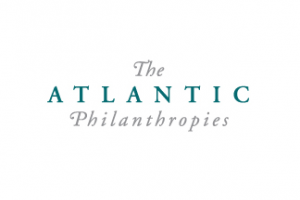The Atlantic Philanthropies is looking to the future with a pair of multi-decade investments in the Atlantic Fellows program totaling nearly $200 million. The grants push total investment into the Atlantic Fellows program to $600 million, the foundation’s largest collective investment in its 35-year history, which will conclude this year.
A $91 million grant to the London School of Economics and Political Science (LSE) will establish an Atlantic Fellows program at the school’s International Inequalities Institute. The program will draw on LSE’s international faculty and work in collaboration with other institutions including the University of Cape Town in South Africa and Cornell University in Ithaca, N.Y.
Emerging leaders interested in global inclusion, health, and equity will be given the opportunity to participate in residencies, seminars, mentorships, project work and networking through the LSE program.
A second 15-year, $106 million grant will establish The Atlantic Institute, a knowledge-sharing hub for Atlantic Fellows’ global network in Oxford, U.K. The institute will be operated by the Rhodes Trust and provide additional support to fellows in the form of global convening of participants and innovation prizes to help implement particularly creative ideas.
“Before we completed our grant-making, which is scheduled for this year, we wanted to identify initiatives that would identify emerging leaders and host them at places aligned with our work,” said Christopher Oechsli, president and CEO. The foundation’s work has been based largely on structural inequality – including judicial systems and access to healthcare. In LSE, the foundation leadership found a partner in line with its own thinking, he said.
The institute is seen by Oechsli as a supporting and convening resource for what might be an expanding fellowship program, which started with two investments made last year.
Prior investments in Atlantic Fellows include a $177 million grant to launch the program at the Global Brain Health Institute, a dementia-focused collaboration between the University of California – San Francisco and Trinity College Dublin. A $40 million fellowship initiative has also been made in partnership with the China Medical Board.
Two additional prospective fellowship programs are already far along and might be completed as early as the end of the month, Oechsli said. Another two under development might be up for consideration by the end of the third quarter – leaving a potential total of seven programs with a supporting institute.
The Atlantic Fellows program will be geared toward individuals in the middle of their careers and oriented toward public service and leadership. Cohorts of fellows are in the early stages of being formed at existing program sites, Oechsli said, with the goal of keeping groups small, with 15-30 fellows per cohort per program.
Funding for the programs will be finite given The Atlantic Philanthropies’ limited life. Ten years, in some cases as much as 20, has been identified as the minimum level of support program need to build a critical mass. Prolonged sustainability will be dependent on programs’ ability to function effectively and fundraise, Oechsli said.
The decision to cease grant-making 2016 was made 12 years ago, when The Atlantic Philanthropies’ founder, Chuck Feeney, committed to “giving while living” and establishing a set time frame to pay out resources. Since 1982, nearly $8 billion has been granted.
It is anticipated that The Atlantic Philanthropies will continue to exist and pay out existing grants for several more years, before concluding all work in 2020. “It’s an exciting way to conclude 35 years of work,” Oechsli said.










